Short Stay/Outpatient Total Joints – There’s No Place Like Home
Aug 29, 2019Richard “Alex” Sweet II, MD
Richard A. Sweet, M.D. (Retired 2022)
Kate S. Hamilton, PA-C
Introduction: The length of hospital stay after knee and hip replacement surgery has been steadily decreasing over the last 3 decades. There have been a variety of factors influencing this treatment. Improvements in surgical technique, pain management, and implant design help make earlier hospital discharge possible. In addition, medical economic forces to put pressure on all parties to decrease the cost. The result has been a gradual reduction hospital length of stay that until recent years had plateaued to 2 or 3 nights in the hospital.
Rehabilitation Hospitals: Several decades ago, most hip and knee patient’s would be discharged from the hospital to an inpatient rehabilitation hospital. However, insurance has long since stopped paying for this. The only option today, is a skilled nursing facility (SNF) such as a nursing home. While this may be a necessary step for some patients postoperatively, in general we try to avoid this. These facilities are not well-equipped to deal with postoperative patients. Orthopedic literature has shown increased rates of hospital readmission, medical complications, and surgical complications from patients discharged to an SNF facility. For some patient’s, a short stay in an SNF facility is necessary prior to discharge home. In those rare instances, we have contracted with a few of the top facilities to ensure your safety and rapid recovery.
Recent Trends: In the past couple years, there is no new push to further shorten the length of hospital stay. Outpatient (same day discharge) knee and hip replacement surgery has become increasingly common and people rarely stay more than one night in the hospital. This trend is due to four major factors.
1. Surgical technique improvement: Surgical techniques employing more minimally invasive/muscle-sparing principles have continued to evolve. For knee replacement surgery, we use a “minimally invasive” quadriceps muscle-sparing surgical approach. This allows for rapid return of quadriceps muscle function, lesser pain, and a more rapid mobilization. Minimally invasive and muscle sparing hip approaches from both an anterior and posterior approach have had similar effects.
2. Implant design improvements: Hip and knee implant designs have improved greatly in recent years. We have both chosen to use the Journey II medial pivot total knee system and the Polarstem/R3 hip components with Verilast technology to improve outcomes and longevity.
3. Pain management advances: Improvements in pain management have made patients much more comfortable during the first 24-48 hours after surgery, when the pain has traditionally been most severe. Use of newly developed slow-release numbing agents (Exparel) that are injected into the joint during surgery, have been shown to be effective for 48–72 hours without interfering with muscle function. Alternatively, newly developed preoperative blocks performed under ultrasound no longer paralyze the leg, but numb the pain fibers and leave muscle function intact.
4. Medical economic factors: As the cost of medicine has escalated, medical economic forces have put increasing pressure on all parties to cut costs by shortening the length of hospital stay. These economic factors have motivated hospitals and other surgical facilities (who are experiencing decreased reimbursement for knee and hip replacement surgeries), surgeons, the physical therapy team, and even patients (who are experiencing increasing out of pocket expenses) to “find a way” to make the hospital stay even shorter.
5. Home health care improvement: We are now able to offer physical therapy immediately after surgery where the therapist comes to your home. While people recover faster when they are able to go to a physical therapy facility, immediately after surgery this is not always feasible. Importantly, patients no longer have to stay in the hospital to receive these services. Nursing care is also available at home and are able to recognize early potential problems and complications postoperatively. Early discharge after knee and hip replacement surgery has become incredibly successful due to this.
Patient Advantages: There are several advantages to the patient for a short hospital stay or even outpatient surgery.
1. Rapid mobilization: A big advantage of early discharge is the natural increase in mobilization demonstrated by patients at home. Patients at home spend more time in a chair, in the kitchen, in the living room, and “doing things for themselves”. All of these are a form of rehab and are arguably just as important as formal physical therapy
2. Decreased complications: The hospitals where we choose to operate are leaders in sterile technique, patient safety, and new/innovative ways to minimize surgical complications. However, hospitals are large facilities that take care of sick people. The safest place to recover from surgery is to minimize exposure while at home.
3. Decreased out-of-pocket patient expenses: Many patients undergoing joint replacement surgery now have health insurance coverage that requires out of pocket expenses to the patient. These are calculated as a percentage of overall costs. For those patients, the lower the cost, the better. Early hospital discharge can keep these costs to a minimum.
Patient Requirements for Early Discharge:
1. Help at home: Although knee and hip replacement patients become independent and are able to take care of themselves quickly, for the first few days help at home is needed just for routine personal care issues and safety.
2. Patient health and fitness: In general, good overall health and fitness is required for early safe discharge after major joint replacement surgery. Those with significant health issues or with increased risk of complications will be best served with a traditional 2-3 nights hospital stay.
3. Home environment: Many patients considering early discharge to home after joint replacement surgery have concerns regarding the ergonomics of the home environment. Of particular concern is presence of steps that need to be navigated at home. Although a patient who has just returned home post-op after knee or hip replacement surgery may not be able to repetitively deal with stairs, a moderate amount of stair climbing is both taught by the therapy team prior to discharge and can be dealt with readily by the patient



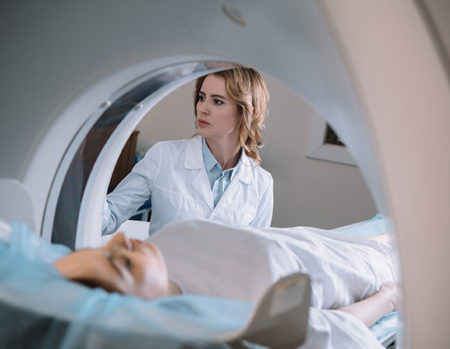 Our patients can receive MRI imaging onsite at both our Louisville and New Albany Clinics.
Our patients can receive MRI imaging onsite at both our Louisville and New Albany Clinics. Providing the latest advances in orthopedic surgery is our specialty.
Providing the latest advances in orthopedic surgery is our specialty. We take a unique, multidisciplinary approach to pain management.
We take a unique, multidisciplinary approach to pain management.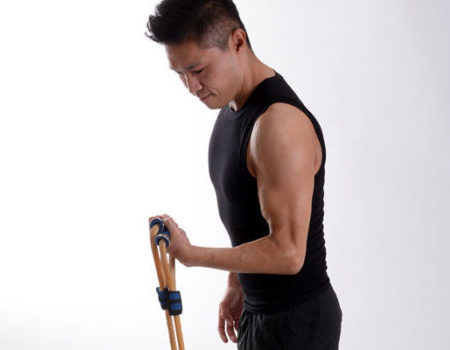 Our physical therapists use advanced techniques to help restore strength and mobility.
Our physical therapists use advanced techniques to help restore strength and mobility. 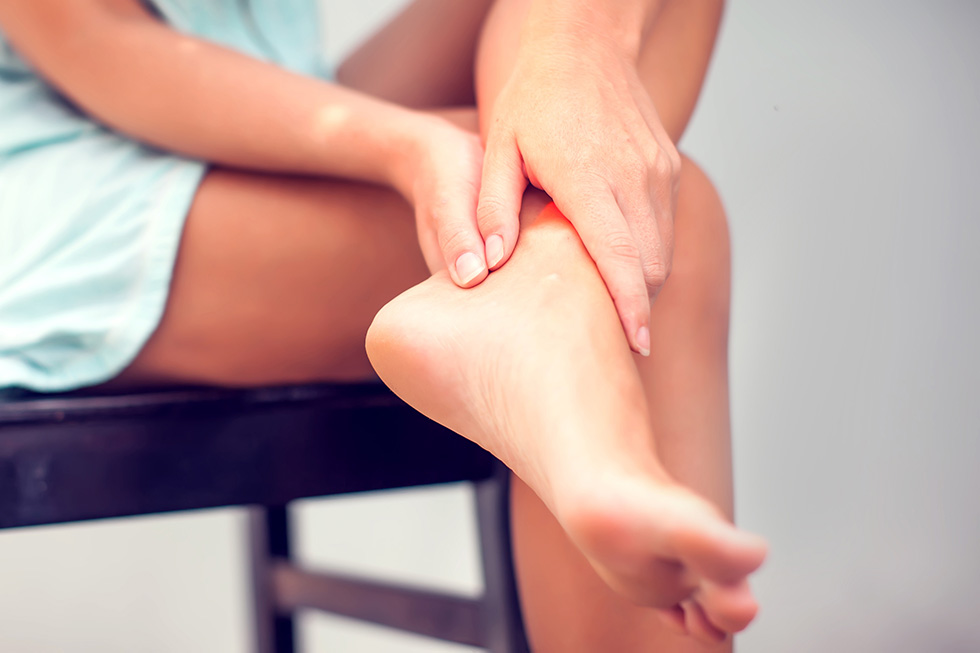 We provide comprehensive, conservative care for a wide variety of foot and ankle conditions.
We provide comprehensive, conservative care for a wide variety of foot and ankle conditions.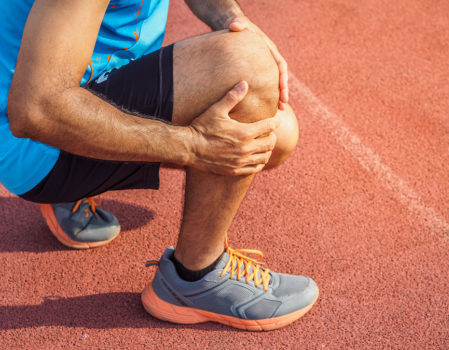 We offer same- and next-day care to patients with acute injuries.
We offer same- and next-day care to patients with acute injuries. Get back in the game with help from our sports medicine specialists.
Get back in the game with help from our sports medicine specialists. 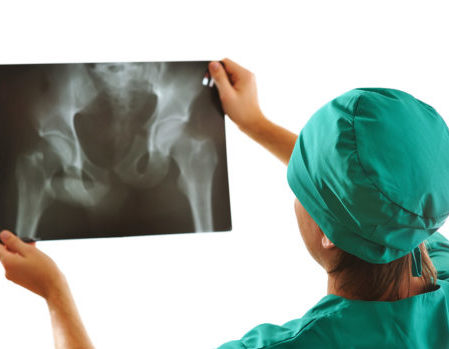 Our centers are equipped with a state-of-the-art digital X-ray machine.
Our centers are equipped with a state-of-the-art digital X-ray machine.